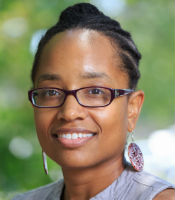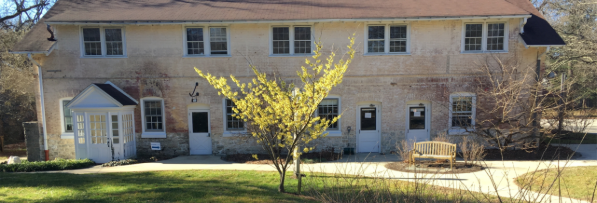Pricing (Sliding Scale Registration)
Subsidized Fee: $175
Basic Fee: $200
Fee Plus: $225

Feb 1-26, 2021
NB: This workshop is AT CAPACITY. Please call the Registration Office at ext. 137 for more information.
This year’s virtual workshop responds to ongoing health, economic, and racial crises by providing a brave space where US-based, white inheritors of wealth can enact partial and imperfect race-based redistributive justice. Honoring the legacy of Black neighborhoods that have been targeted in a white supremacist state, participants will commit and transfer money to legacy Black residents from two neighborhoods impacted by gentrification. In order for the workshop to happen, registrants must commit $20,000 collectively. Prior workshop participants will facilitate a series of pre-workshop monthly discussions about charity vs. justice (on November 7), the inheritance advantage (on December 12), and preparing for a popular education experience (on January 9). Each discussion will take place 4pm – 5:30pm Eastern Time, with invitations sent to all registered participants. We hope that you will register soon and take advantage of these pre-workshop conversations.
The month-long workshop will involve three 90-minute synchronous web-based meetings each week, organized around assigned readings, videos, and assignments. Carol Anderson’s White Rage: The Unspoken Truth of Our Racial Divide and Keeanga-Yamahtta Taylor’s Race for Profit: How Banks and the Real Estate Industry Undermined Black Homeownership will be featured texts. Over the first three weeks, participants will develop statements that explain the significance of their race-based reparations before transferring committed funds. In the final week of the workshop, white participants will share prepared reflections and meet legacy Black residents, who will share their stories.
To read a history of this workshop, click here.
To read an interview with Melchor, click here.

This program will be online via Zoom and will follow this schedule – all sessions are Eastern Time (US & Canada).
Week 1: Acknowledging White Rage
Feb 1, 3, 5 ~ noon-1:30pm
Week 2: Understanding Black Homeownership
Feb 8, 10, 12 ~ noon-1:30pm
Week 3: Planting Sankofa Seeds
Feb 15, 17, 19 ~ noon-1:30pm
Week 4: Transferring Resources to Black Blocks
Feb 22, 24, 26 ~ noon-1:30pm
Below are some testimonials from previous workshop attendees:
“Melchor Hall has fearlessly and compassionately challenged me to examine my role in today’s racial disparities and to take constructive action to address them. She thinks “outside the box” and she practices what she preaches. If you take this worshop, be prepared to move beyond your comfort zone, to be supported on that journey, and to emerge with a greater wholeness as a spiritual being and an advocate for justice.” —Jude B.
“I am both a fan and a practitioner of Popular Education where learning settles into your heart and bones rather than just in your head. You cannot help but to put what you have learned into practice. Justice and reparations are now a solid practice of my resistance to White supremacy. For me, this workshop was life changing.” —Carolyn L.
“Melchor Hall skillfully used a popular education method to get us to closely examine our lives, values, and social locations through a justice lens. We were able to see where our white privilege intersects with disadvantages experienced by people of color as a result of white supremacist structures and processes. Our cohort formed a community of practice to support each other in the joyful and liberating process of identifying where we can personally do justice with our resources in meaningful ways to begin to make amends.” —John M.
“I expected this class to be about money. After all, the title says “reparations,” so I came braced to be tough on myself about what I “should” do with the assets under my control. To my astonishment, Melchor’s work started by inviting us to a comprehensive appreciation of everything we treasure about what makes us ourselves. Then we asked whether these assets and experiences and gifts were available to everyone; okay this DID involve some clear-eyed, tough facts about how much of what I think is “normal” isn’t to people of color. And finally, by picturing actual individuals we care about who don’t have what we treasure so, we came of our own accord to reparations as a matter of justice and love and overflowing wish to share and be human together. An amazing alchemy.”
—Joann N.
K. Melchor Quick Hall works with doctoral students as part of the Human and Organizational Development faculty at Fielding Graduate University’s School of Leadership Studies. In that role, she teaches courses in research methods, social and ecological justice, gendered identities and foundations of inquiry. Hall is also an incoming Resident Scholar (2020 – 2023) at Brandeis University’s Women’s Studies Research Center. As a Visiting Scholar in previous years, she has mentored undergraduate students, presenting with them at international conferences and providing opportunities for them to publish their writing. During the 2020-2021 academic year, she also will be a Visiting Scholar at York University’s Centre for Feminist Research and an instructor for Boston University’s Prison Education Program.
Hall has worked as a university professor, high school teacher, corporate trainer, and outdoor environmental educator. She has formal training in mathematics (B.A., Sarah Lawrence College), computer science (M.S., Temple University), international communication (M.A., American University) and international relations (Ph.D., American University). Her book, Naming a Transnational Black Feminist Framework: Writing in Darkness, was published under Routledge’s “Worlding Beyond the West” international relations series. The book is an international relations intervention, calling for acknowledgement of Black feminist living legacies that have been guided by the principles of intersectionality, scholar-activism, solidarity, attention to borders/boundaries, and radically transparent positionality. Mapping Gendered Ecologies is Hall’s forthcoming book that aims to explore the nuances of racialized and gendered human relationships to nature.
In spite of having various published chapters and articles, Hall’s primary identity is as a popular educator. She has been nurtured by professionals, artists, cultural workers, and community activists, primarily outside of the classroom. Her dissertation research and first book come from the community teachings of the Black indigenous Garifuna women who bake ereba (or cassava bread) in Honduras. She grew up with free access to the cultural treasures of the Smithsonian museums, where she has also interned. From the age of eleven she has studied traditional West African dance and culture, and has traveled to both Mali and Senegal for advanced study. The richness of her life’s experience inform the design of her workshops and are deeply influenced by community-based teaching and learning, especially in the Black diaspora.
Travel directions to Pendle Hill. Click to view the flyer.